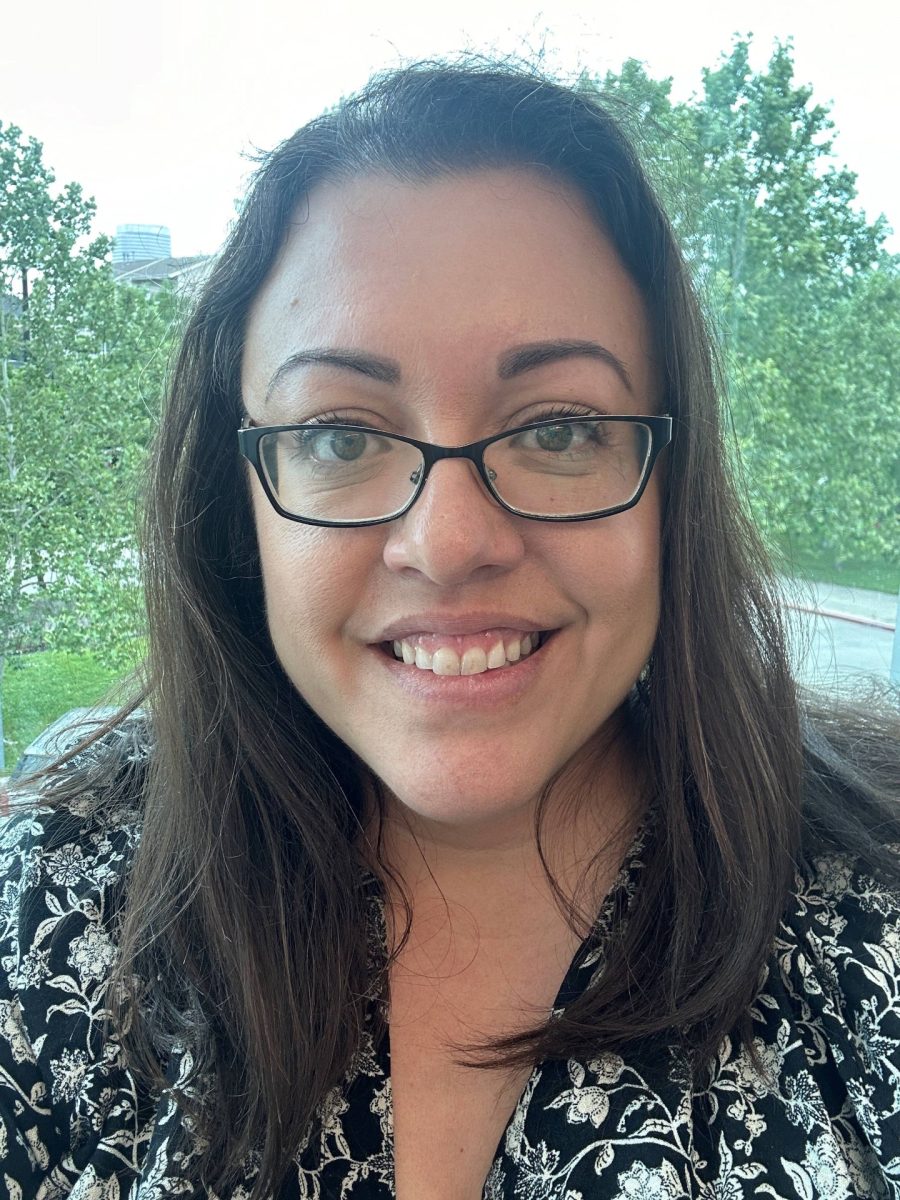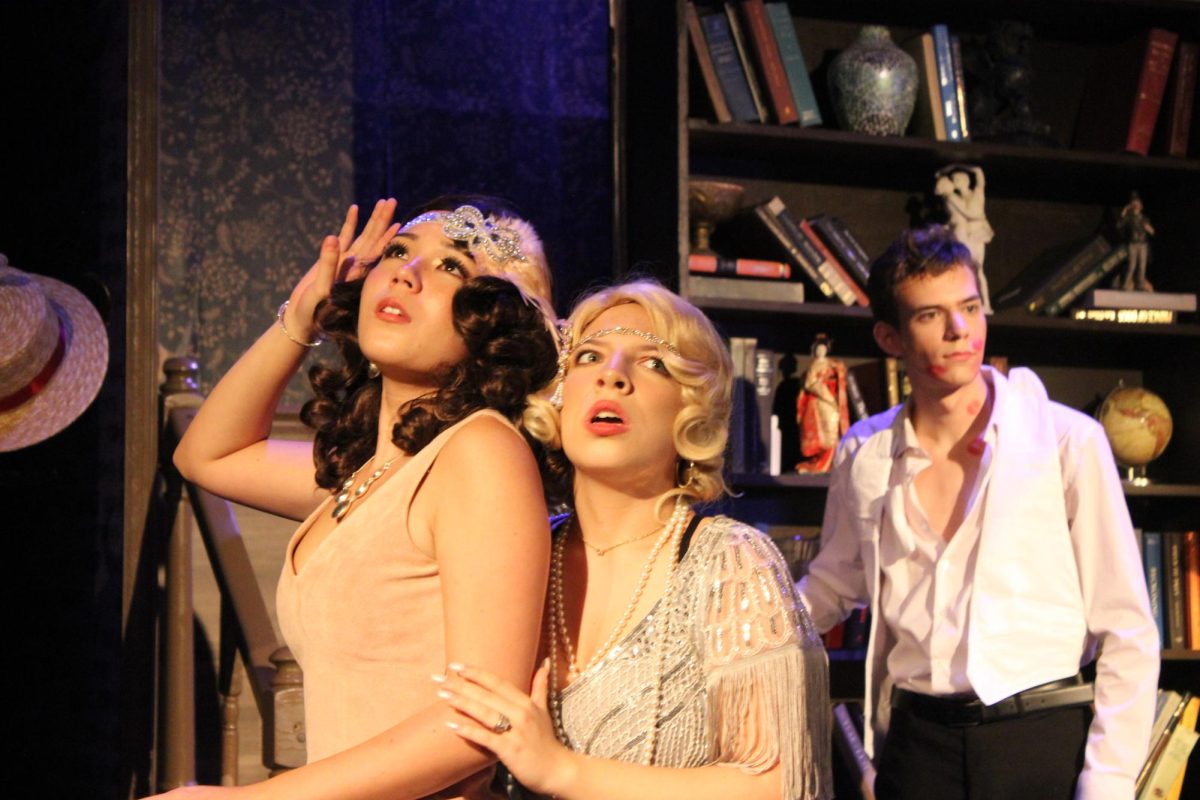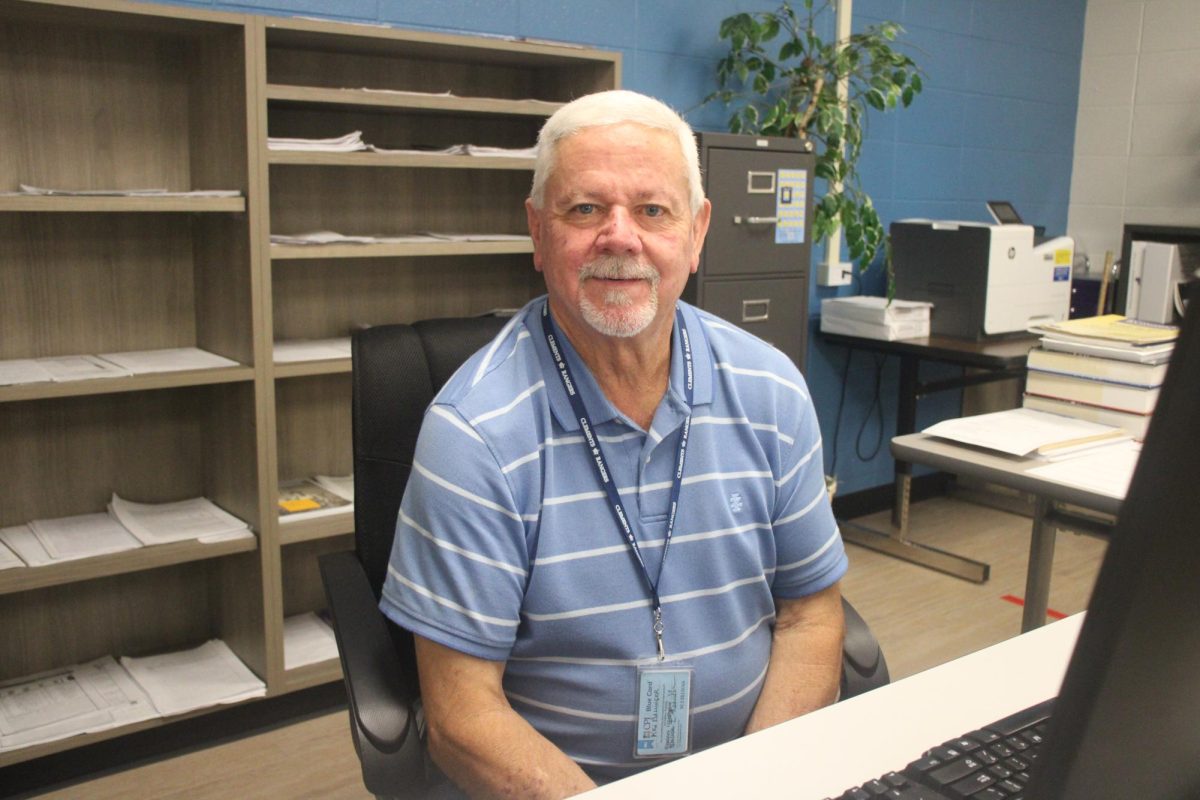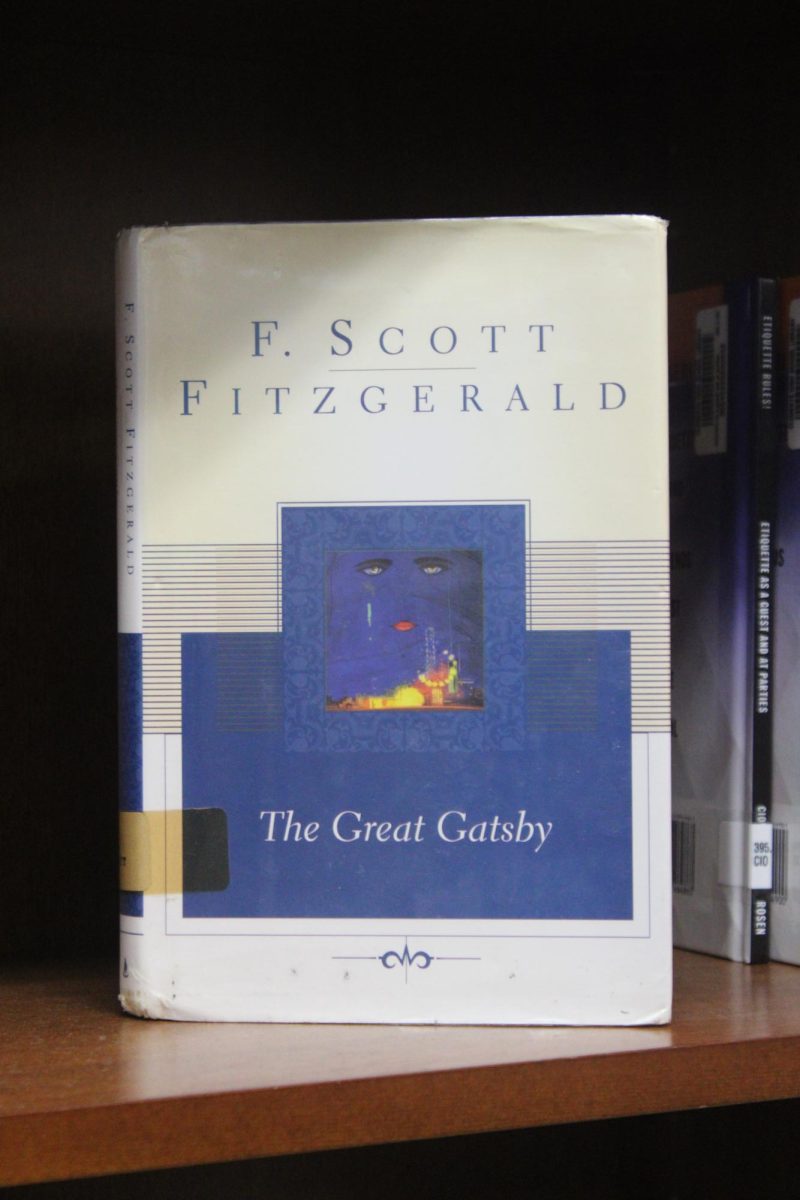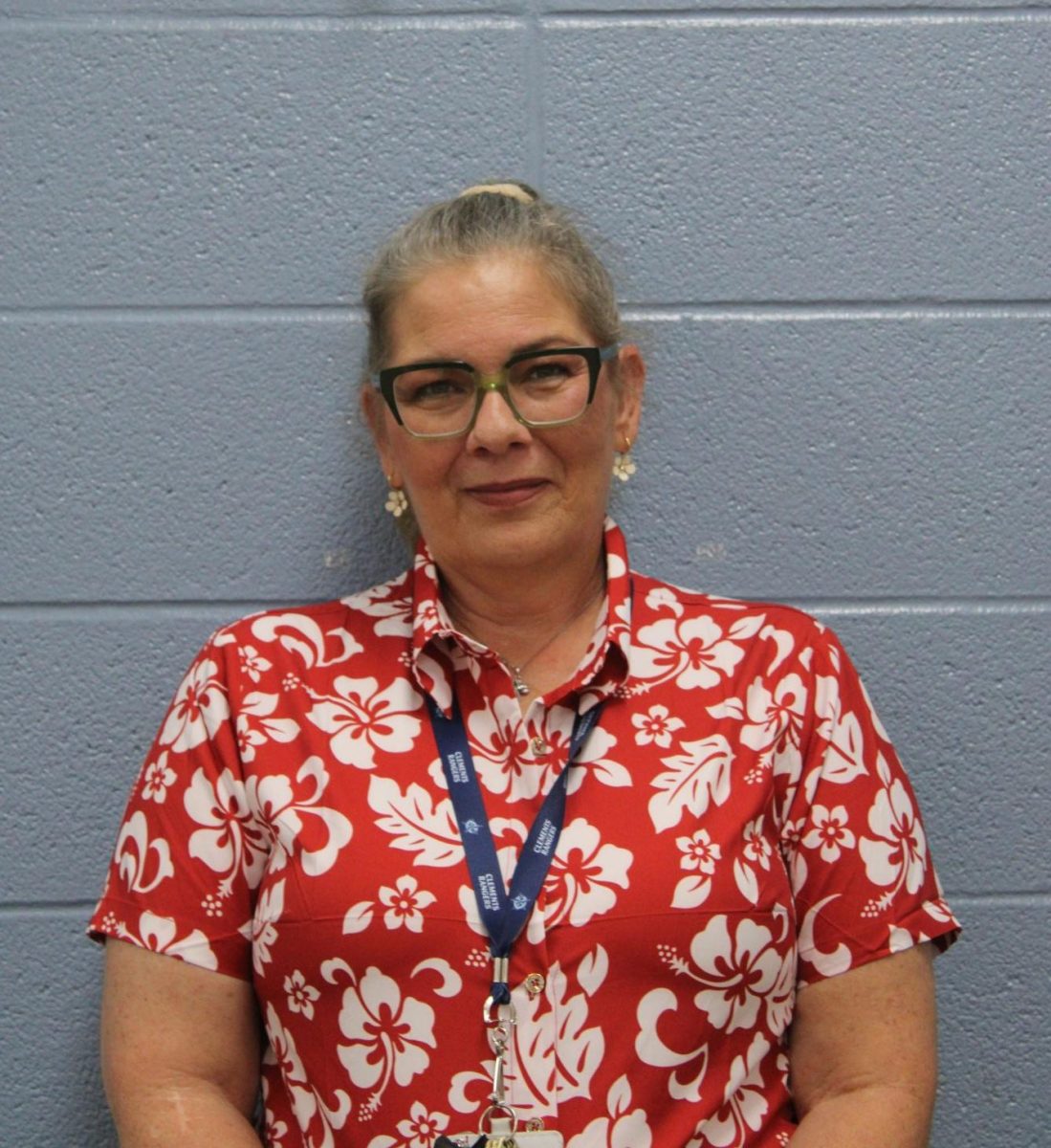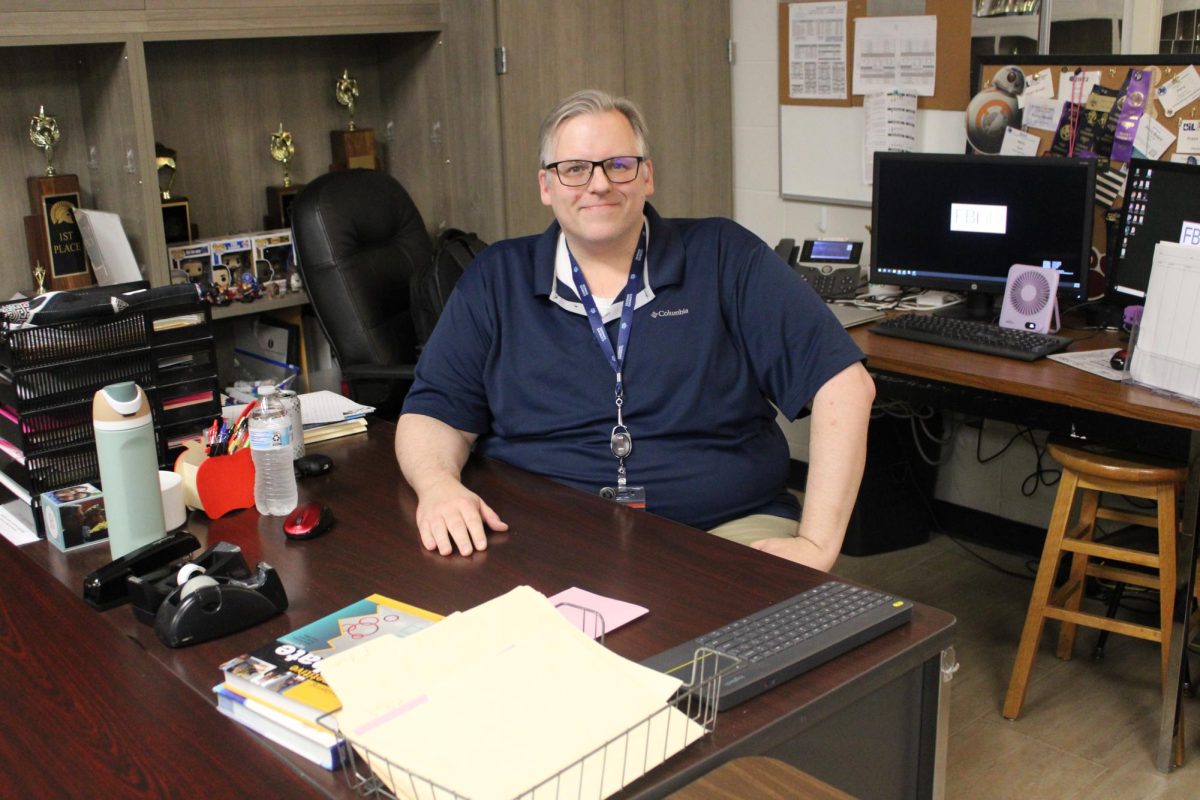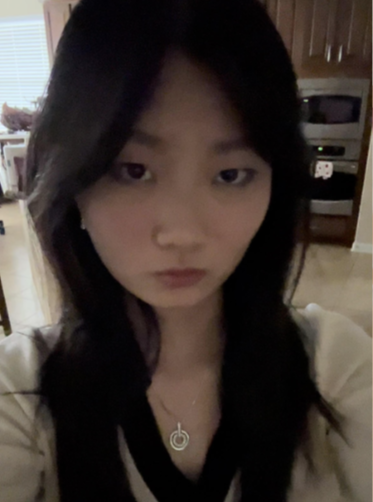With 23 years of teaching experience, Heather Hill ensures AP Lang and On Level English III students are in safe hands. She is also a former teacher at Carnegie Vanguard High School (the top school at HISD) for 17 years. Her goal is to get the AP Capstone program started here.
Grace Hu: What inspired you to become an English teacher?
Heather Hill: Well, both of my parents were English teachers. My mom taught elementary school and my dad taught high school. Actually, he taught in the Vanguard program that eventually turned into Carnegie. So, he retired and I moved over from DeBakey into Carnegie. So English was just always something happening at home. We were always reading books together as a family. And when I went to college, I started off as a poli-sci major, but eventually shifted to an English major because I just love it so much. And I think it’s just genetics, you know, since both of them are. I just knew I did not want to teach elementary. I knew I wanted to teach literature. So it had to be high school.
GH: Did you always want to be a teacher?
HH: I think I was pretty bossy as a kid. So that kind of seems natural. And I was always at my mom’s school or my dad’s school. It was just something, that environment. I was always around. So I was very familiar with it. And when I graduated from college, I didn’t really know what I wanted to do. And I decided to teach until I figured it out. And 23 years later, here I still am. I never really had a passion or a pull for anything else.
GH: Do you have hobbies outside the classroom?
HH: Well, I love to read, you know, surprise, right? I’m an English teacher, but reading, I kind of got burnt out from reading after being an English major and didn’t really read for fun for many years, but eventually found my love for reading through a lot of like fantasy and sci-fi books.
I also love watching movies. I used to teach a film class at Carnegie that I got to create, which is why I have so many movie posters in my room, but I’m obsessed with films. If I can go do films, go see a movie regularly, I will. On Friday nights, we do a family movie night, which is a lot of fun. We kind of rotate, everybody picks, you know, takes turn picking movies. So like it was my turn this past Friday and I showed my kids “Back to the Future”, which they loved. I was surprised [because] I didn’t think they were going to like it, but they really loved it. When my youngest daughter picks, it’s almost always “Frozen”. We will never stop watching “Frozen”. And my oldest daughter is in a Trolls mood right now, so every movie she picks is one of the three Trolls movies. That’s a lot of fun and it’s more bonding and we get to have pizza or whatever we want to eat and it’s just a good routine. And I hope as they get older, you know, we’ll keep doing it. It’s something we all look forward to.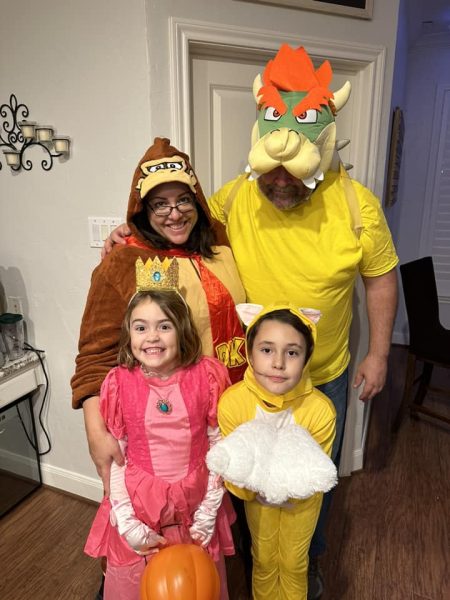
GH: Is there like a specific author or book that you like teaching about?
HH: As far as teaching, I love American Lit. American Lit is definitely my passion. I took a lot of contemporary American fiction classes in college and I loved reading a lot of Kurt Vonnegut, Joan Didion. But I also loved more like classics, like “The Great Gatsby” is one of my favorites. I just find it a lot of fun to teach. One book I remember I did not think I was going to enjoy teaching was “The Scarlet Letter” because it just seems so boring, but I hadn’t had to read it. And so when I finally taught it, when I was at DeBakey, it forced me to read it and I loved it. So when I’m passionate about it, I think it translates well to my students and they can kind of see, hopefully, that there’s something fun about it, because I know not everybody is a reader. And ultimately, I just want students to be able to walk away finding something that they like to read.
GH: What do you believe is an important quality for a teacher to possess?
HH: I think being flexible. That was one of the hardest things that I had to learn was that I can’t always make everyone do things the way I want them to do it and I need to be flexible. Because what’s most important is the students learning the skill, learning the objective. However they get there, it doesn’t really matter. They’re going to do it the way that’s best for them. It could be slower, it could be a lot of trial and error, or it could be super fast and easy. Maybe they’ll see something see it, you know, accomplish it in a way that I never would have expected and so I get to learn something.
I try to remind the students regularly, that there is more to life than just school and your grades. Being flexible, I think helps me understand why they make some of the choices that they make and be more sympathetic and willing to give them more chances, you know. So I don’t just write them off if they cheat or use ChatGPT. I get that most of the time, it’s the pressure that’s put on them and that’s why they choose it. Sometimes it’s laziness, or just disinterest in the assignment. But I try to be flexible so that I can understand where they’re coming from, and then try to compromise with them and meet them somewhere and not just completely write them off.
GH: How do you make English more engaging for students?
HH: Well, picking pieces that I enjoy, so that I if I’m excited about it, I hope that translates to them and they can get excited, but also giving them lots of options so that they can choose different things to read. So maybe there’s something there that is more interesting to them. It’s kind of restricted in AP lang, it’s like we have to cover so much, you know, it’s there’s a lot more flexibility in on level English, because then we can just kind of explore and read all kinds of things. It’s not restricted to like the test expectations, right? So that’s one way. But also, you know, making sure the students realize that English is one part reading, but it’s also communication. Whether it’s a movie, whether it’s a song, a poem, a piece of literature, whatever it is that they’ve read or enjoyed, or, you know, heard, that they can think about it and connect with it and express that connection well to another person, then I think that is something that they can get excited about and realize, okay, English doesn’t have to be reading a bunch of dead old white guys, we can, you know, read something or listen to something, or look at something and watch something that I could connect with more and find a connection with and then be able to talk about that connection. And I think that can be a lot of fun when that happens when that clicks for kids.
GH: How do your teaching methods vary for different genres?
HH: When I’ve taught English in the past, I definitely taught different genres. I loved teaching and focusing in on genre rather than just theme, because I thought by looking at the different genres, we could be exposed to all kinds of different writing styles, different themes, different lessons and ideas that would then on its own create all these different options and moments that different students could connect with.
When I would teach something that was more contemporary, then it’s great to kind of connect to current events and connect to history. Whereas when if I teach more like the classics, like Shakespeare, then it’s more about the language, right? And just trying to understand and then translating that so that students realize that, ‘oh, well, I can connect to this as well.’ Like with Shakespeare, I always tried to incorporate Disney into that because so many Shakespeare plays, especially Hamlet, seem to show up in Disney films, like the Lion King, for example, is a great example with Hamlet. When students see that, that I think gets them a little bit more excited and it is a bit more approachable.
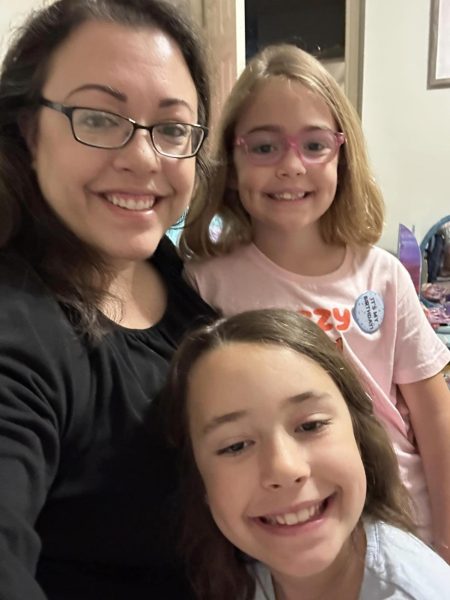 GH: Are there any resources or materials that you recommend for students who want to deepen their understanding in literature?
GH: Are there any resources or materials that you recommend for students who want to deepen their understanding in literature?
HH: I think just reading as much as possible, whatever it is. I don’t think you have to go and read all the classics to be a well-read person. I think it helps reading from other cultures, reading from different authors’ perspectives. So I think that’s the best way to really explore and learn not just about the subject matter that you’re reading about, but also yourself because you will inevitably learn something and connect with something that is maybe surprising or unexpected. So I always tried—even with my film class—I always tried to bring in films and materials from multiple different cultures and different perspectives, different time periods, because I think that’s one of the best ways to learn is by that diversity.
GH: How do you create a positive learning environment?
HH: I can be pretty strict, but I try to always be available for my students in the sense that if they email me, if they come talk to me about whatever it is that they’re struggling with, I will be flexible with due dates as much as I can, to give them the time and help that they need to accomplish that goal. Because I really want students to learn that asking for help is not a sign of weakness. And I’m not a mind reader, and I’m always caught up with my own tasks and things that I have going on, so I may not see it for a while that you’re struggling. And so I want to create an environment where students might be embarrassed, might feel uncomfortable, but they can email me or they can come talk to me one-on-one during tutorials, lunch after school, to ask for that extra help or to get advice about something.
Advocating for yourself is one of the most important traits that a person can have. You’ll especially need it in college because you’re going to be one of thousands. Professors love it when kids go and talk to them and ask them questions during office hours or after class, at least all the professors I did have. I created some lifelong relationships with some of those college professors because of those conversations that we had. It was very scary at first, but once I made that attempt, the connection part, and once we started talking, it was much easier. So I try my best to, you know, be as receptive as possible and let the students know, I’m here, you’ve just got to reach out.
The interview has been lightly edited for clarity.

